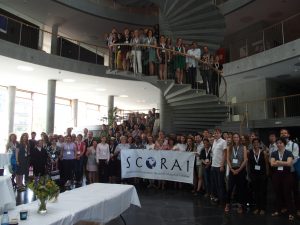Society and Environment, Washington State University, since 1970s – with consumption focus since 2012
- Lecturer: Emily Huddart Kennedy
- Program: undergraduate level, sociology
- Duration: 1 semester (16 weeks), 160m per week
- Class size: 25 students,
- Focus: theories and concepts relevant to environmental sociology, with a focus on consumption.
- Themes: Includes the history of Environmental Sociology, treadmill of production theories, ecological modernization theories, social practice theories, key concepts in environmental sociology including neoliberalism, citizen-consumer hybrid, consumption, environmental justice, ecological citizenship, eco-feminism, and social movements.
- Novel approach: on the first day of class, students are invited to write down what environmental issues are worrisome to them, what is in their power to address, and what they do on a daily basis to improve the issue(s); at the end of the course, they revisit their letters. The purpose is to help students recognize the individualization of environmental responsibility and how their consumption choices are embedded in socio-cultural contexts.
- Student evaluation: three modalities:
- 8-10 page term Paper (35%), with feedback from student peers (10%);
- Two in-class exams, based on essays or short answers (40%);
- Class participation and reading assignments (20%)
- Course evaluation: the students found it challenging to consider questions of power and inequality in relation to (un)sustainable consumption (as opposed to students who received a similar course at the University of Alberta and were engaged by the critical perspective).
- Challenge: empirical evidence of consumption patterns locally, state-level, nationally and internationally is lacking. Also, literature describing race, class, and gender dimensions of unsustainable and sustainable consumption.


